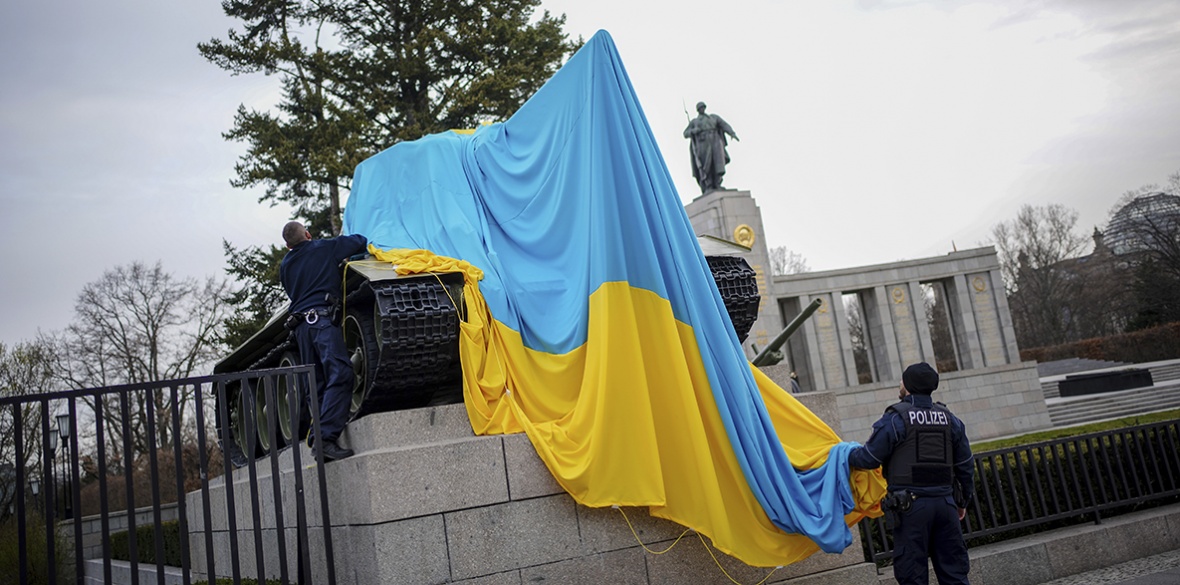This is the last article you can read this month
You can read more article this month
You can read more articles this month
Sorry your limit is up for this month
Reset on:
Please help support the Morning Star by subscribing here
POLICE removed Ukrainian flags from two Russian tanks at the Soviet Memorial in the German capital Berlin today, the second such incident so far this week.
It is believed that the yellow and blue ensigns had been draped over the iconic T-34 tanks in protest against Russia’s invasion of Ukraine, which began last month.
No damage had been caused, a police spokesman said, and the flags were easily removed. No further action will be taken, a statement added.
The tanks, close to the Brandenburg Gate in Berlin’s Tiergarten, serve as a reminder of the defeat of Nazism in Germany, with the Soviet Union playing a decisive role in the fall of Berlin.
On April 16 1945, the Red Army launched an offensive to capture the German capital, with Adolf Hitler committing suicide two weeks later.
Germany surrendered soon after, with Soviet troops raising the red flag above the Reichstag, marking an end to six years of war.
The Soviet Union suffered more losses than any other nation during the conflict, with 27 million citizens killed, of whom 14 million were Russian.
Despite this, provocative attempts have been made to link communism with the current Russian invasion of Ukraine.
The Christian Democratic Union in Berlin called for a monument to German Communist Party (KPD) leader Ernst Thalmann in the city’s Prenzlauer Berg district to be pulled down earlier this week.
A motion has been submitted calling for the Berlin administration to remove the statue designed by Soviet sculptor Lev Kerbel, melt it down and donate the proceeds of material sales to the victims of war in Ukraine.
Soviet statues have been torn down across Ukraine and the country’s communist party and its newspaper were banned in 2015.
In 2019 the European Union passed a motion equating communism with fascism.
The “ahistorical motion” — which the Communist Party of Greece described as “a reactionary monstrosity” — condemned the continued existence of monuments and memorials “glorifying totalitarian regimes” across Europe, including those dedicated to the Red Army.
Communists described the latest move as an insult to the history of Germany’s working-class movement.
Thalmann played a leading role in the failed German revolution of 1919, becoming leader of the KPD in 1925.
He was arrested by the Gestapo in 1933 and was shot in August 1944 on Hitler’s orders.










